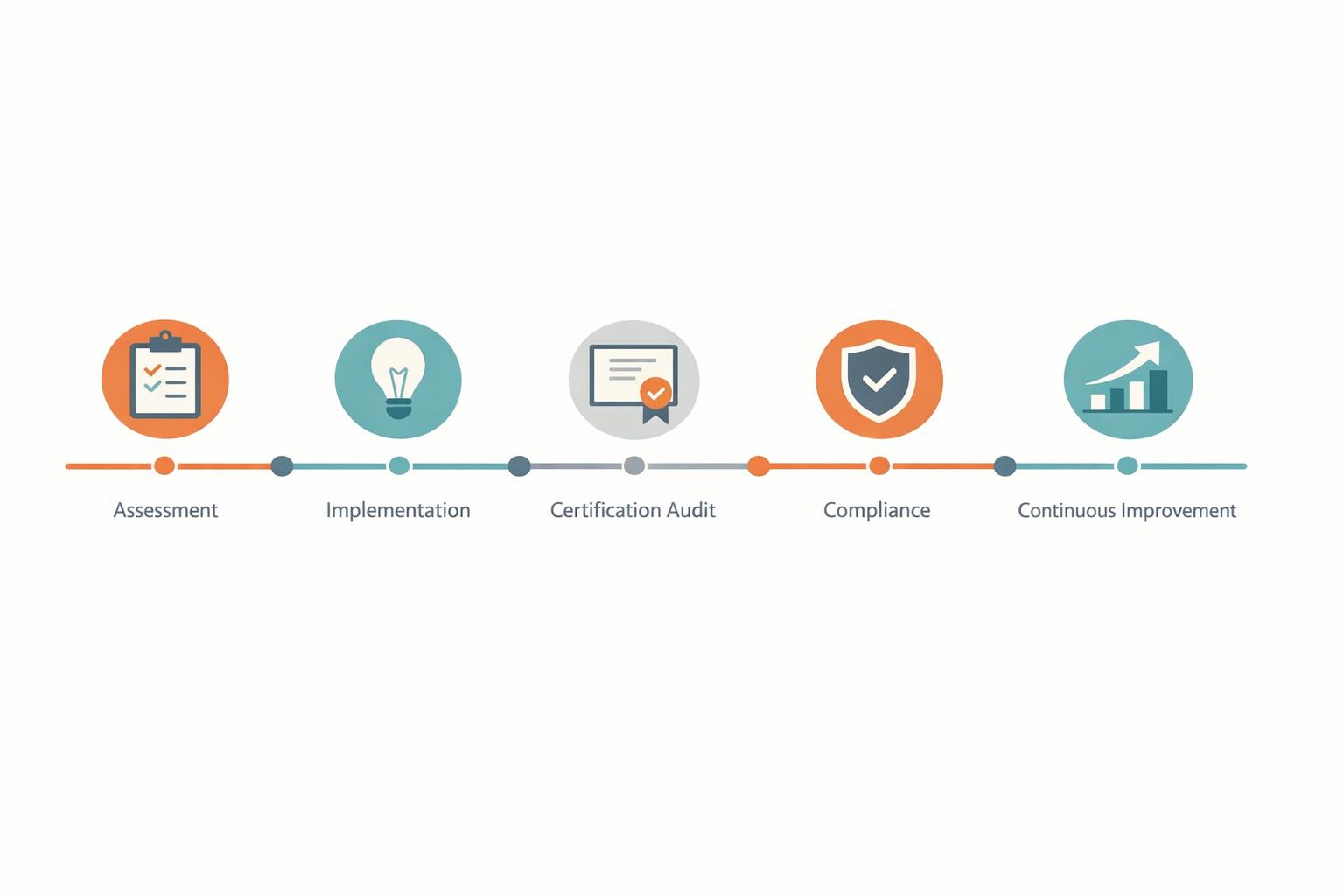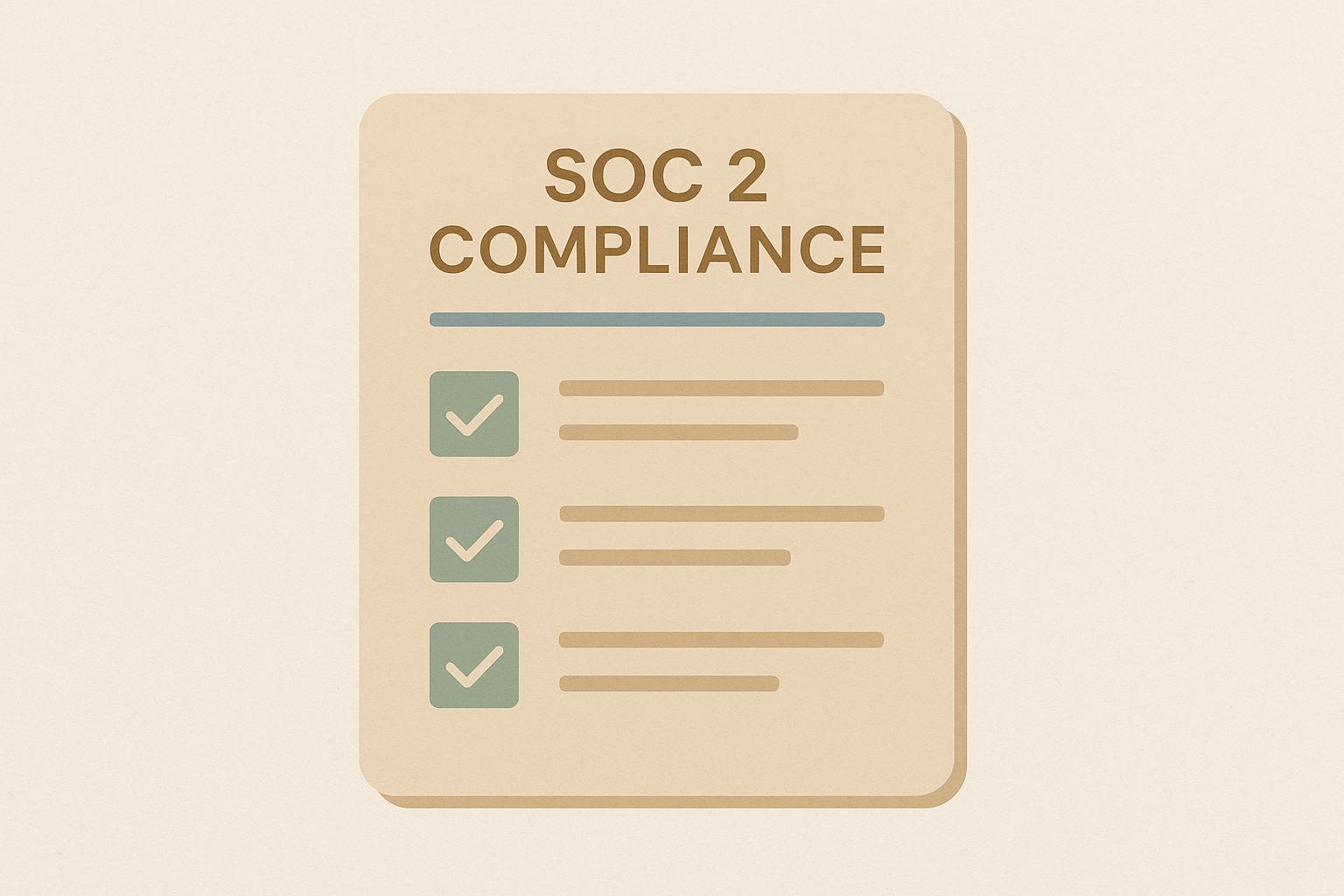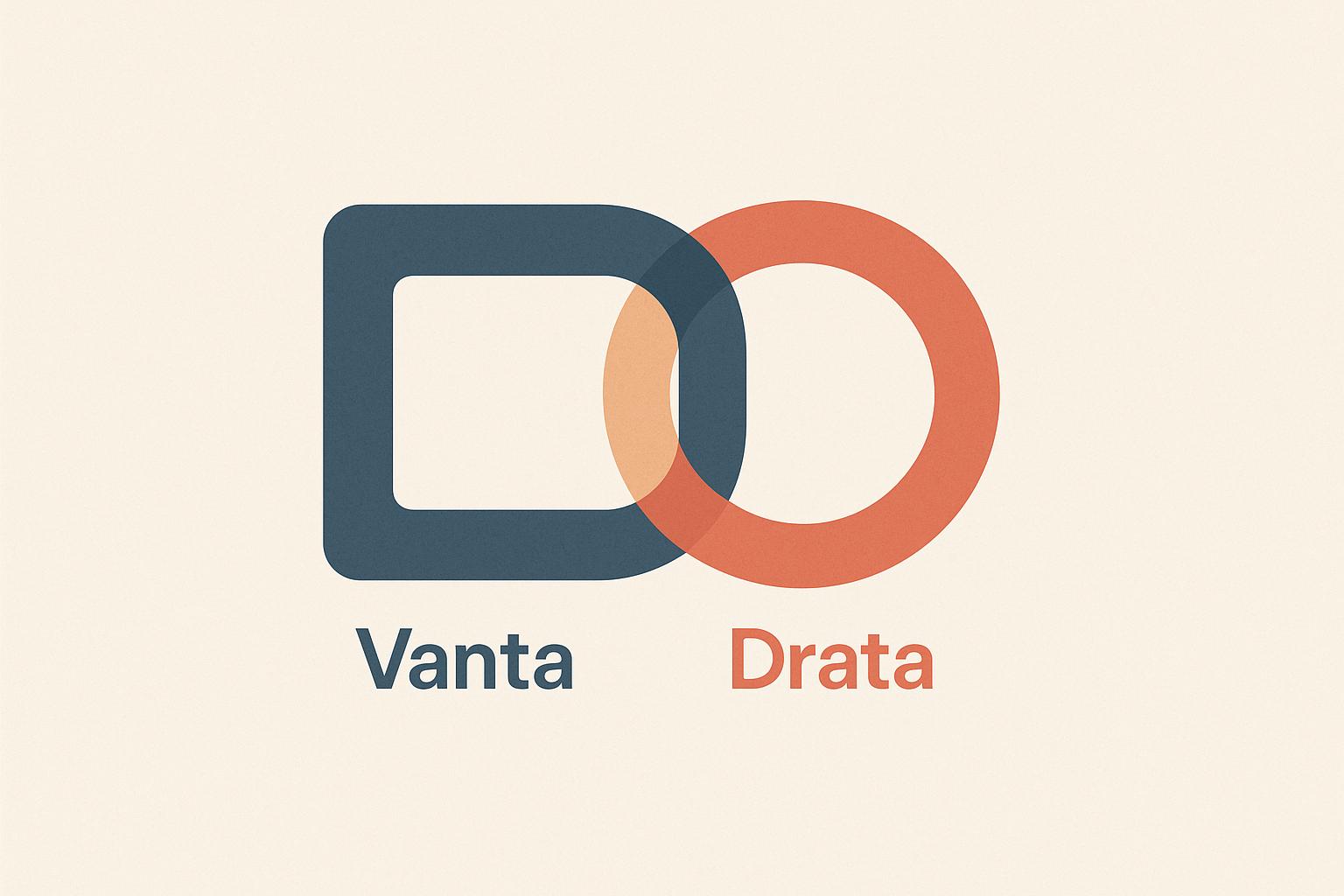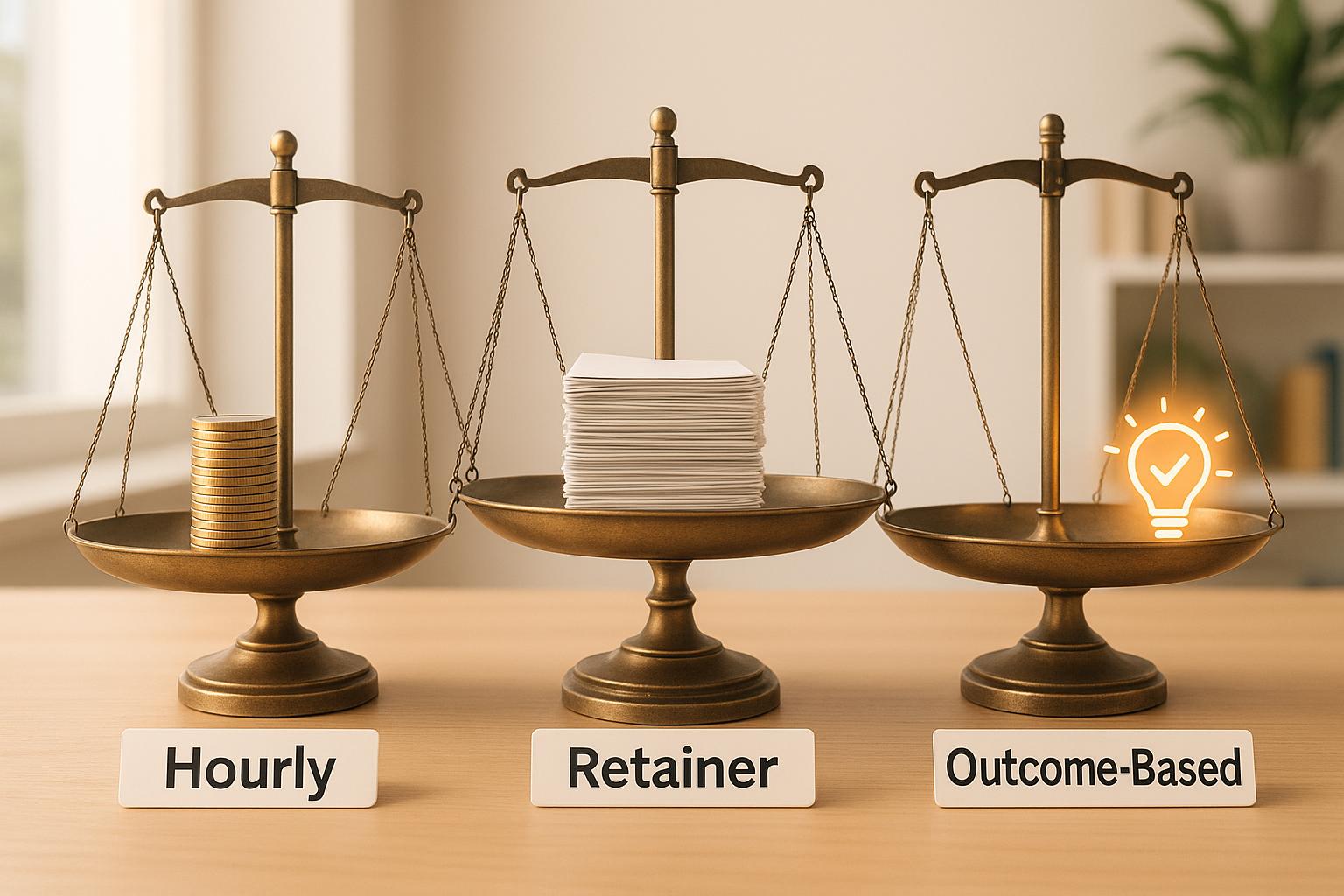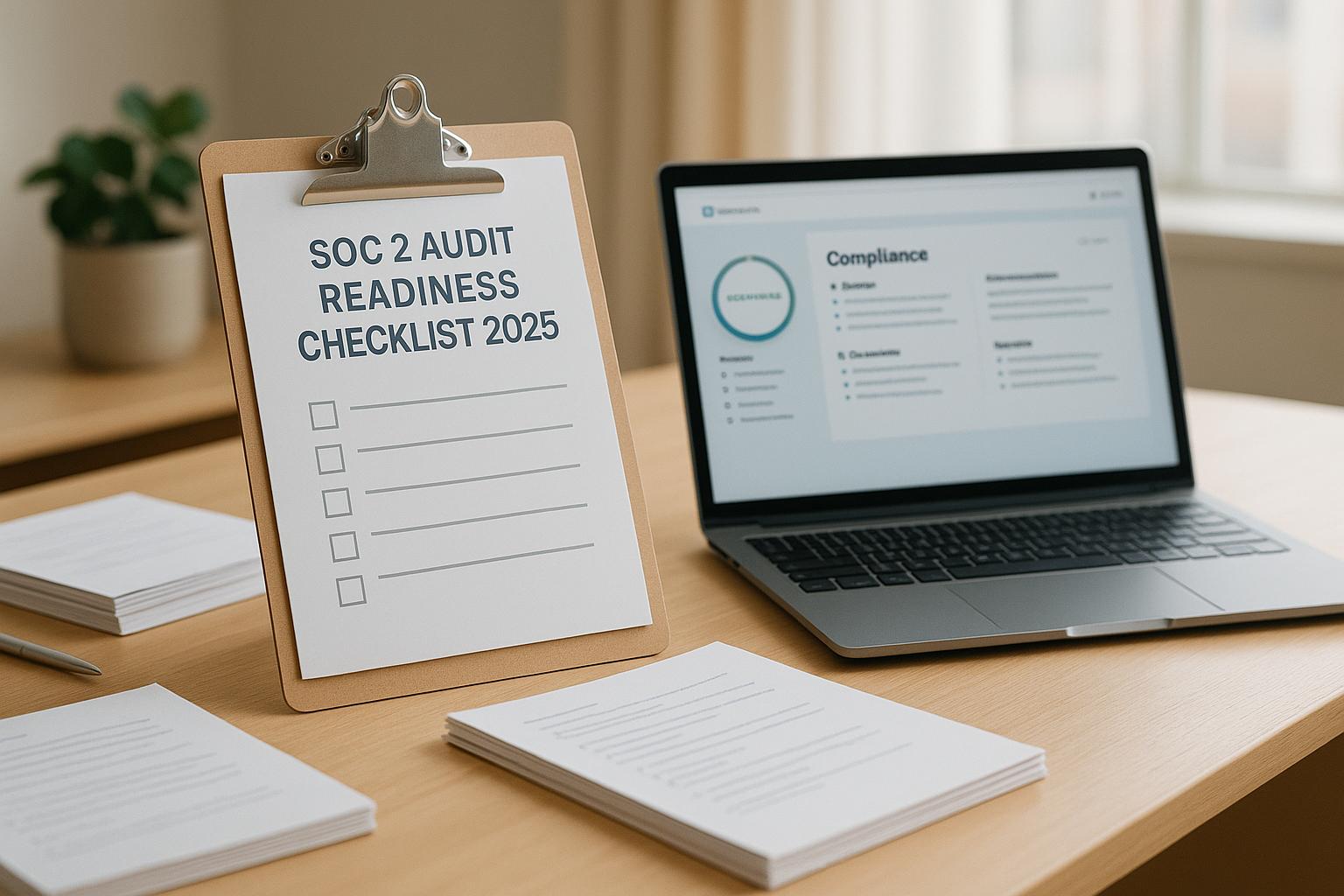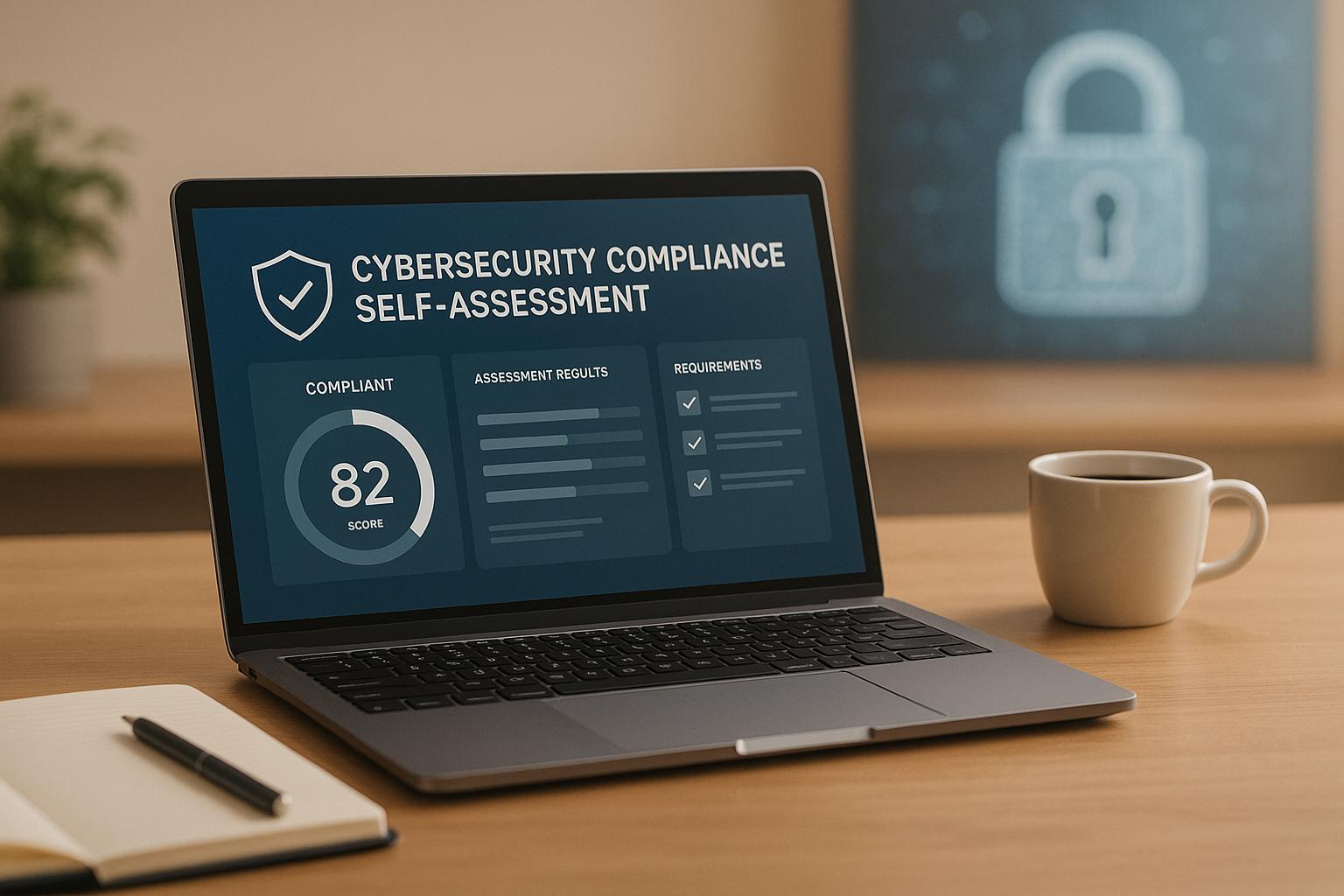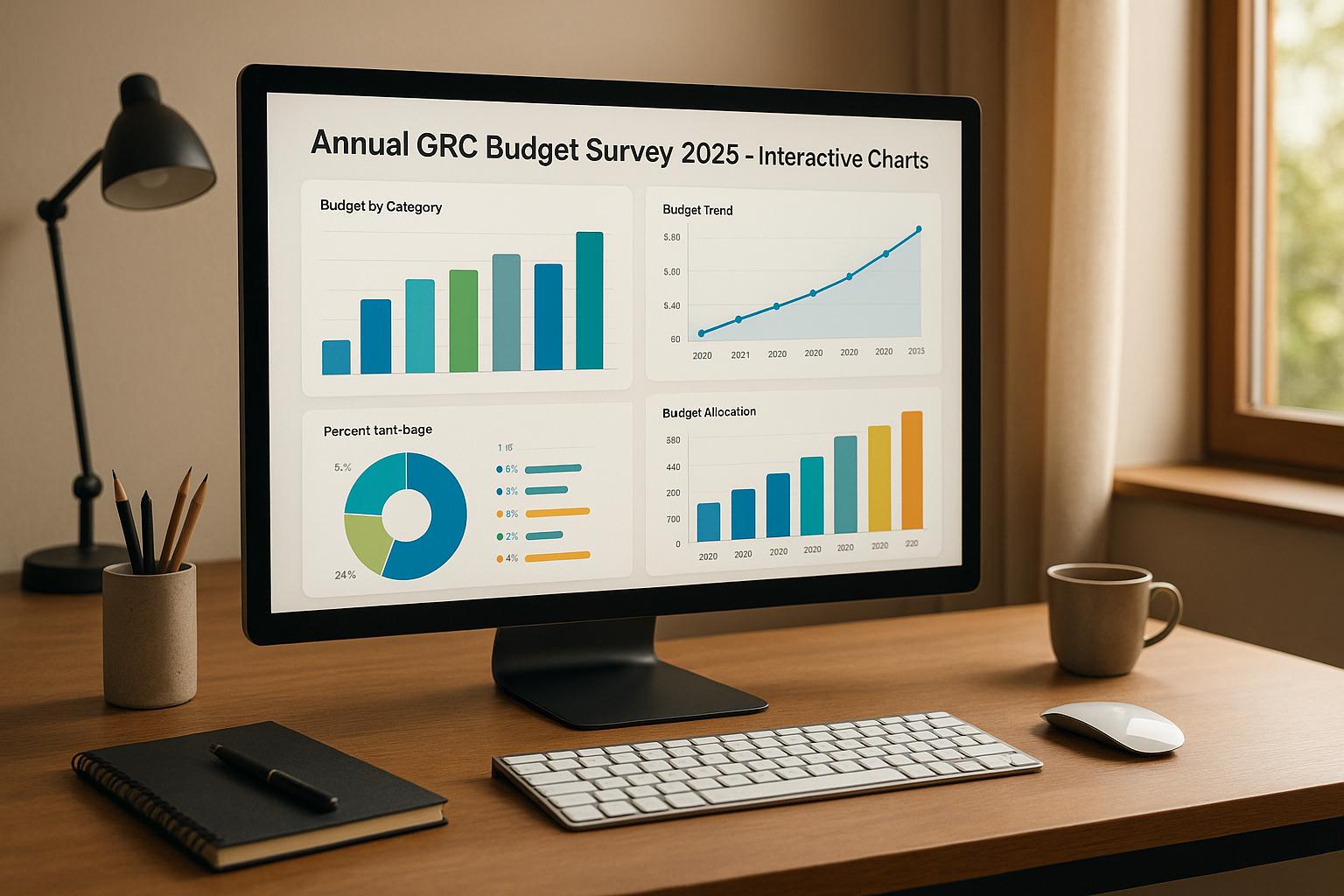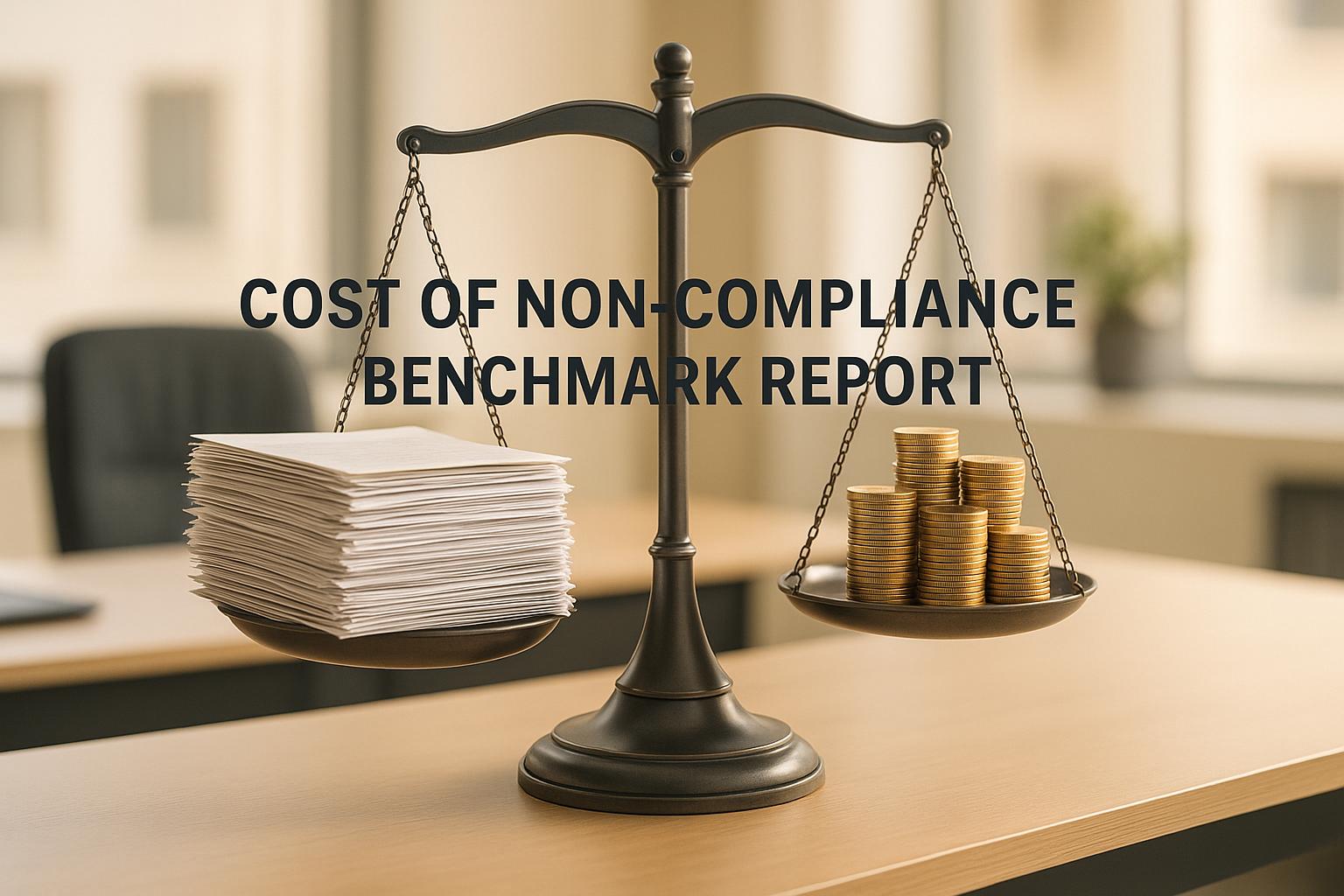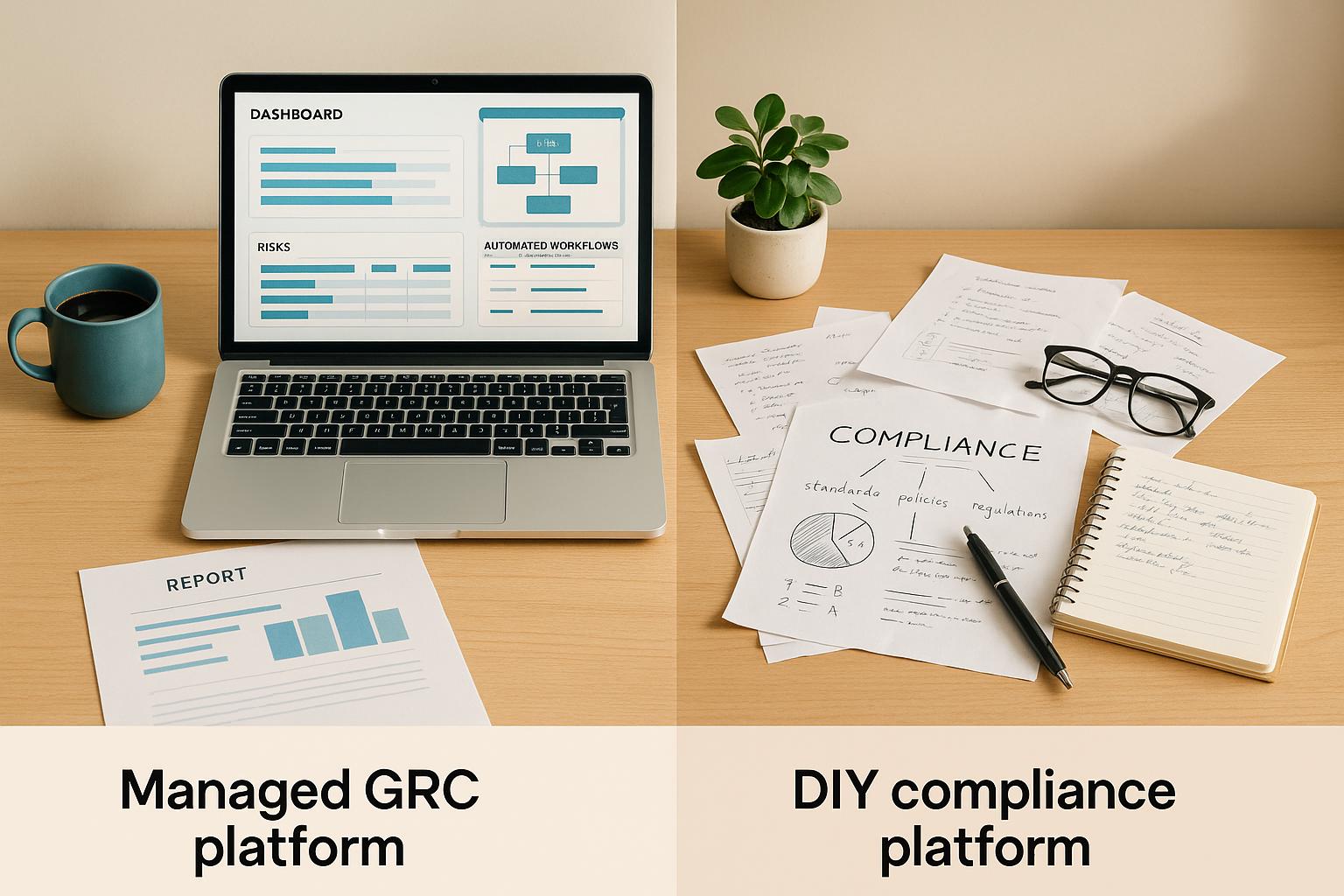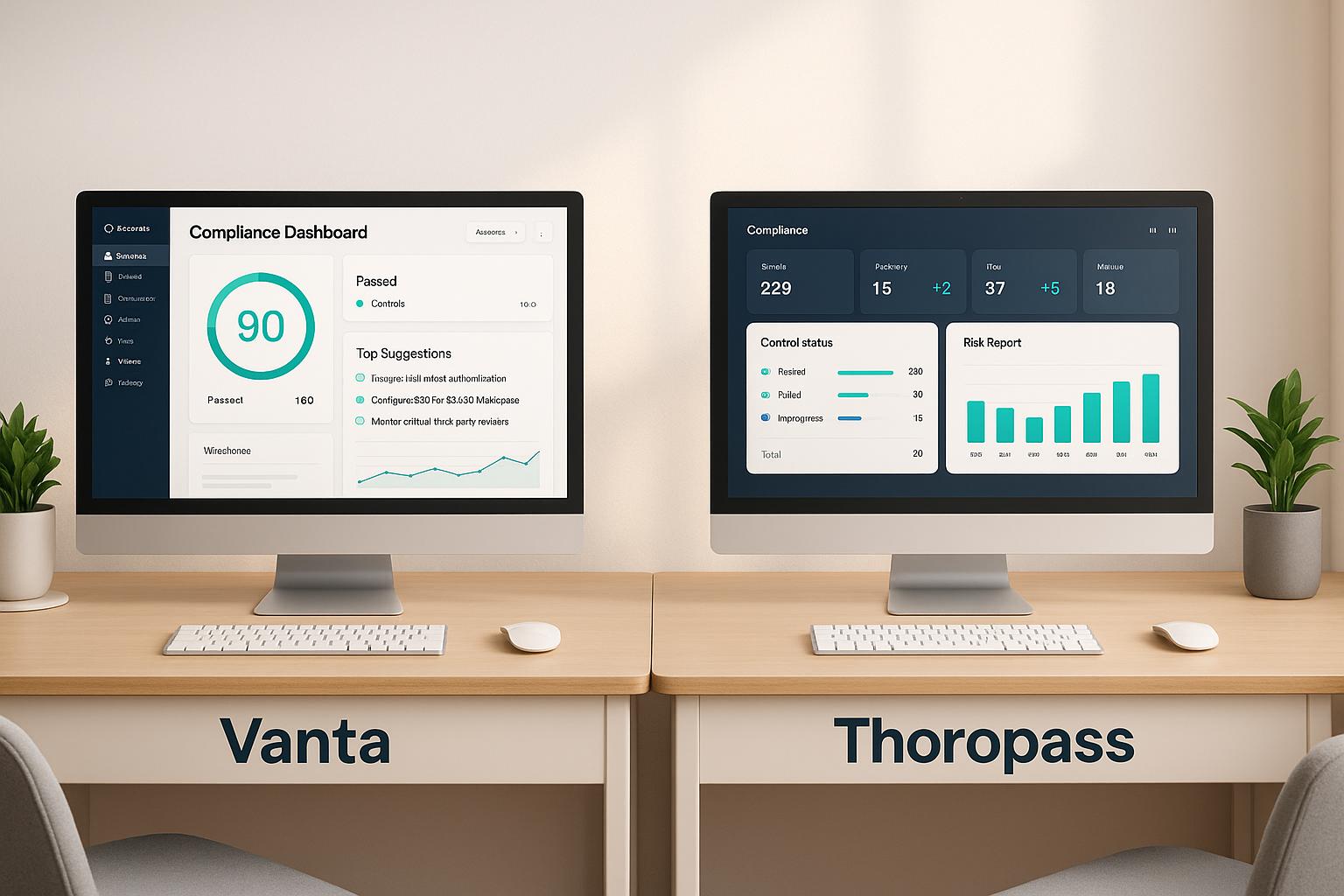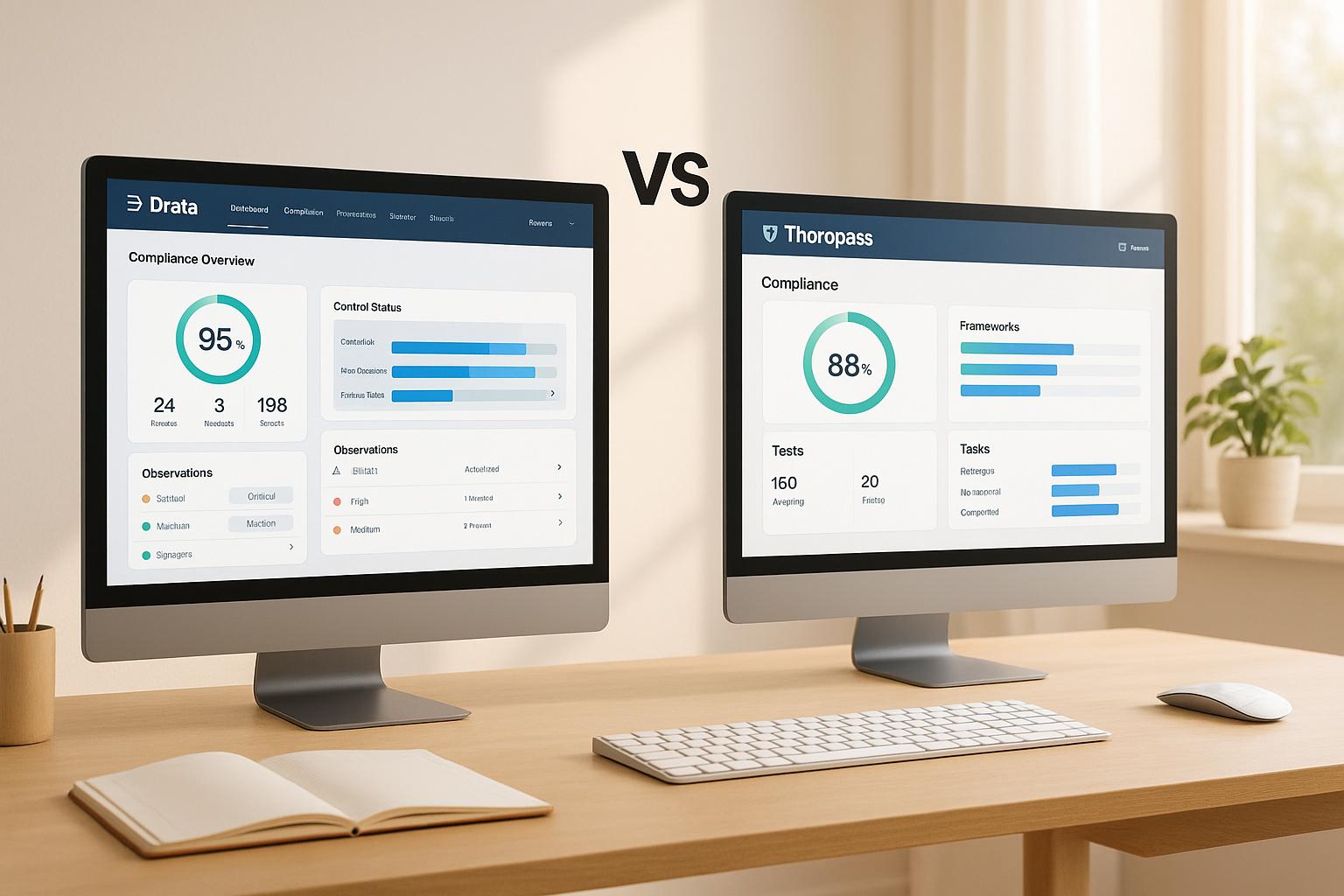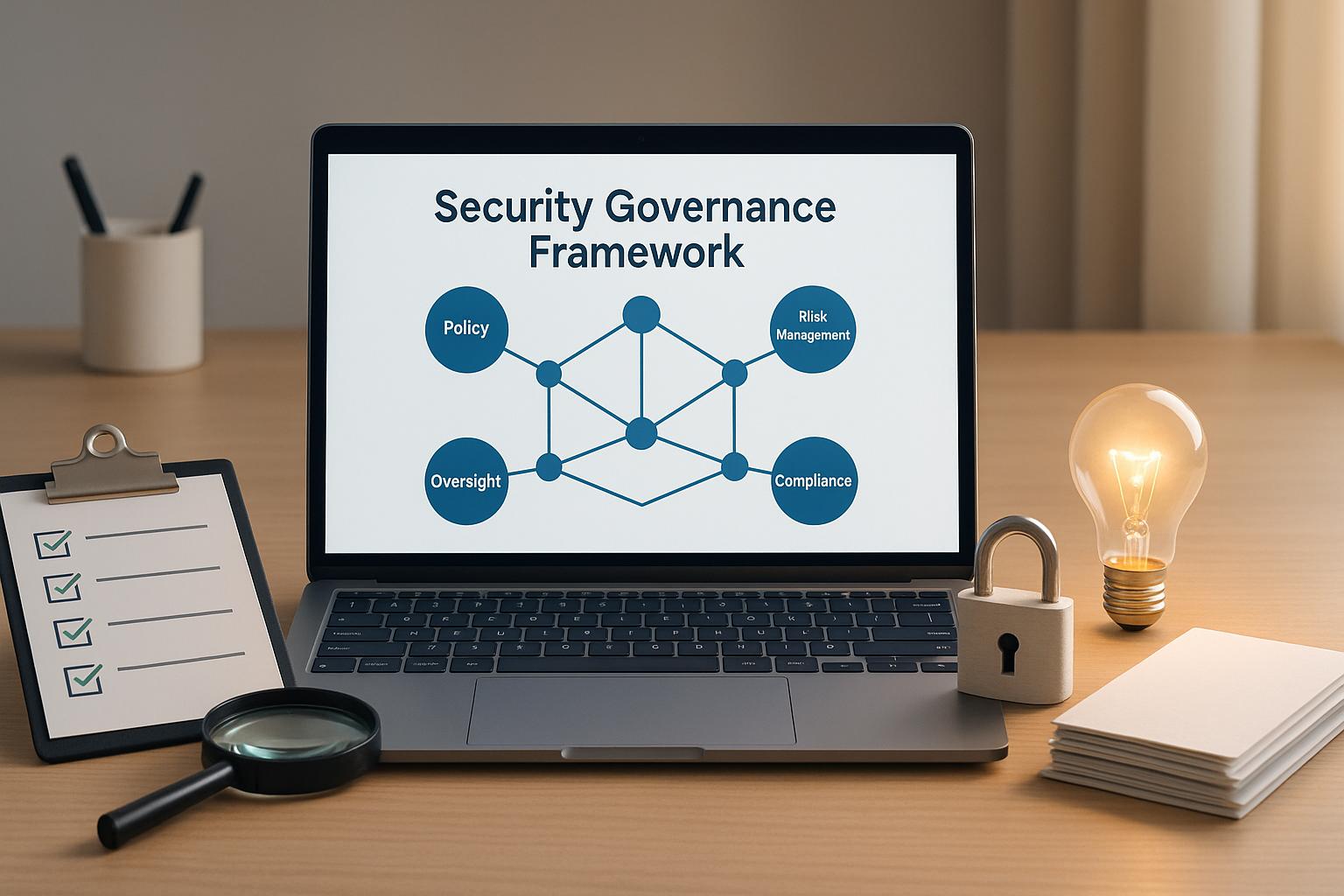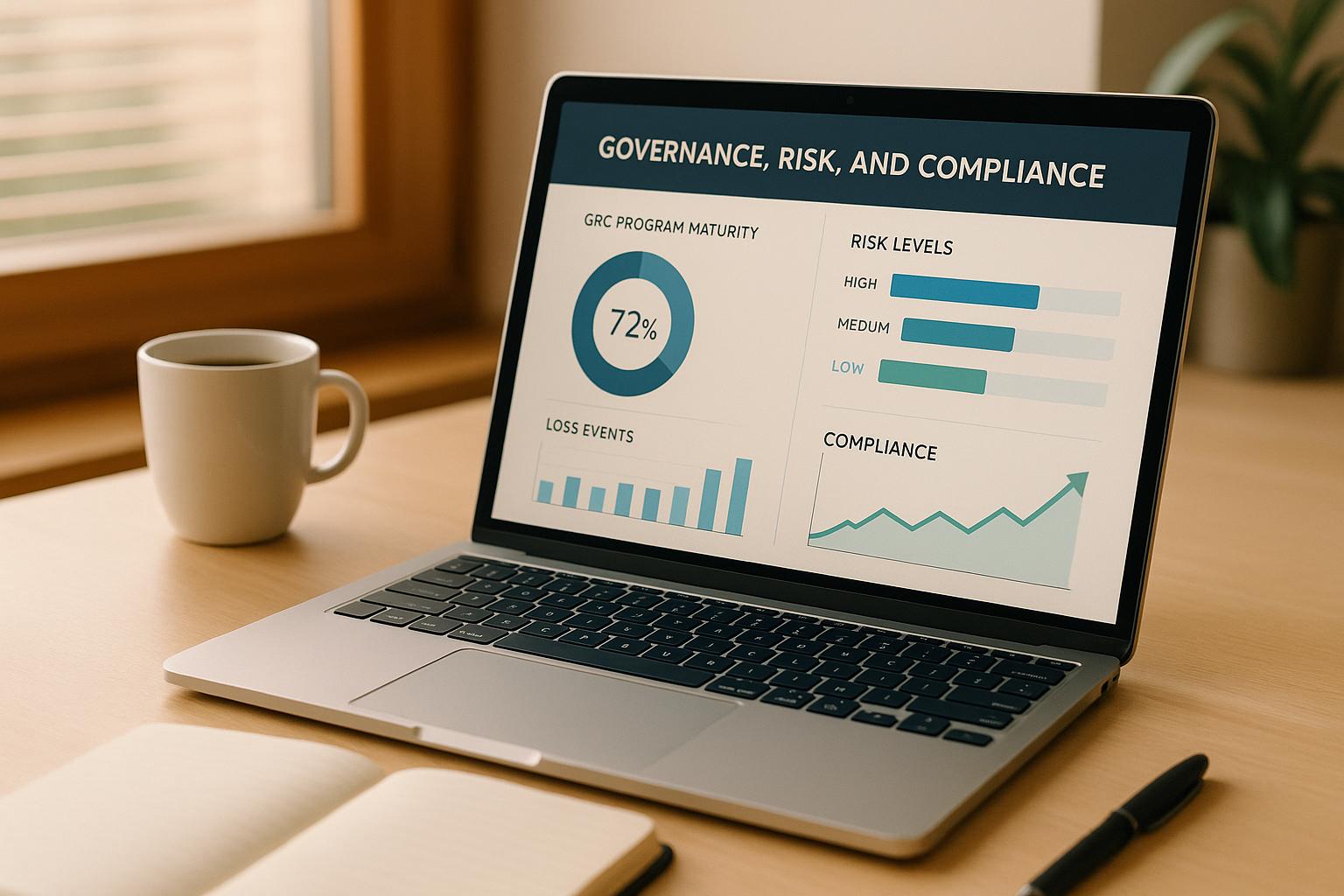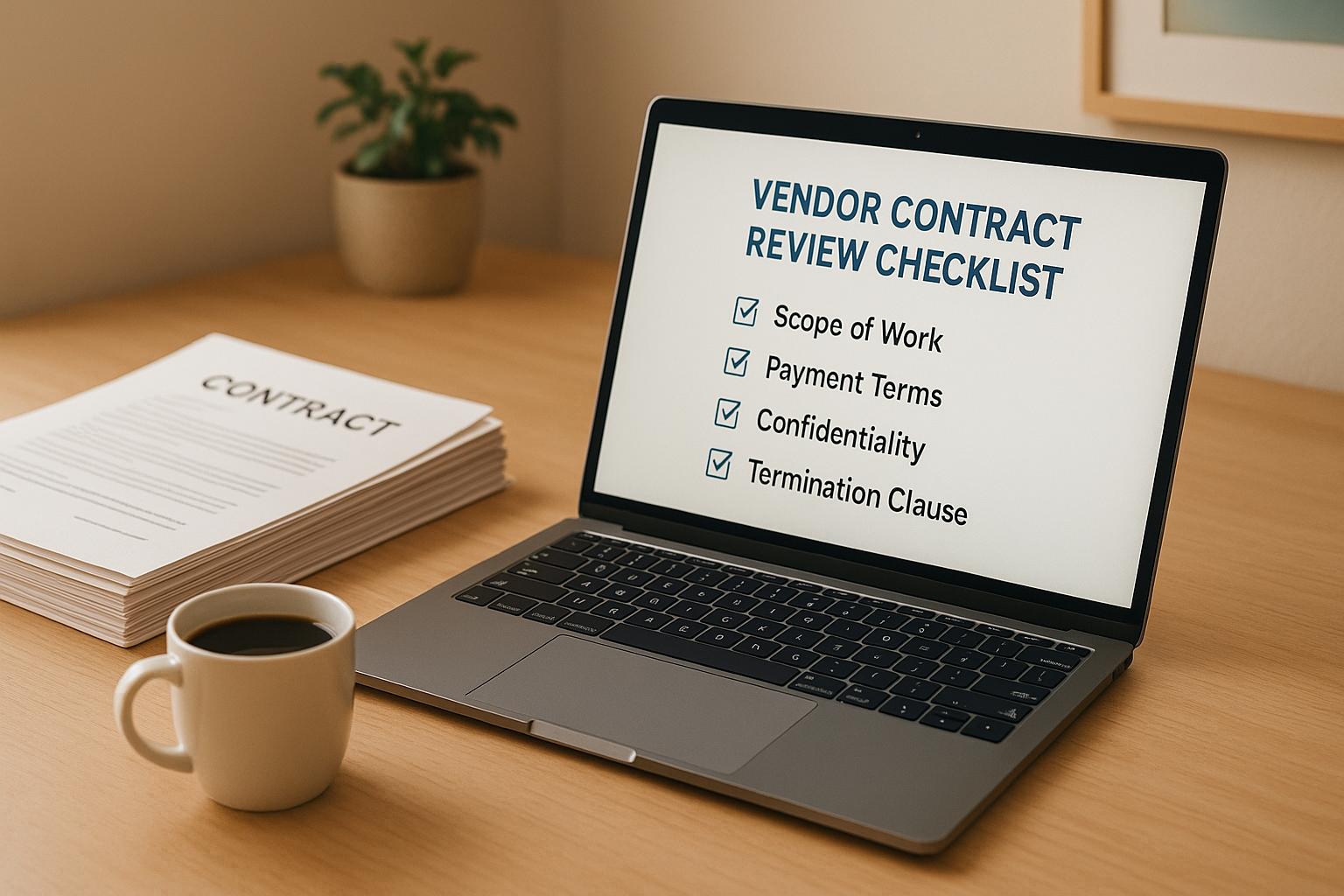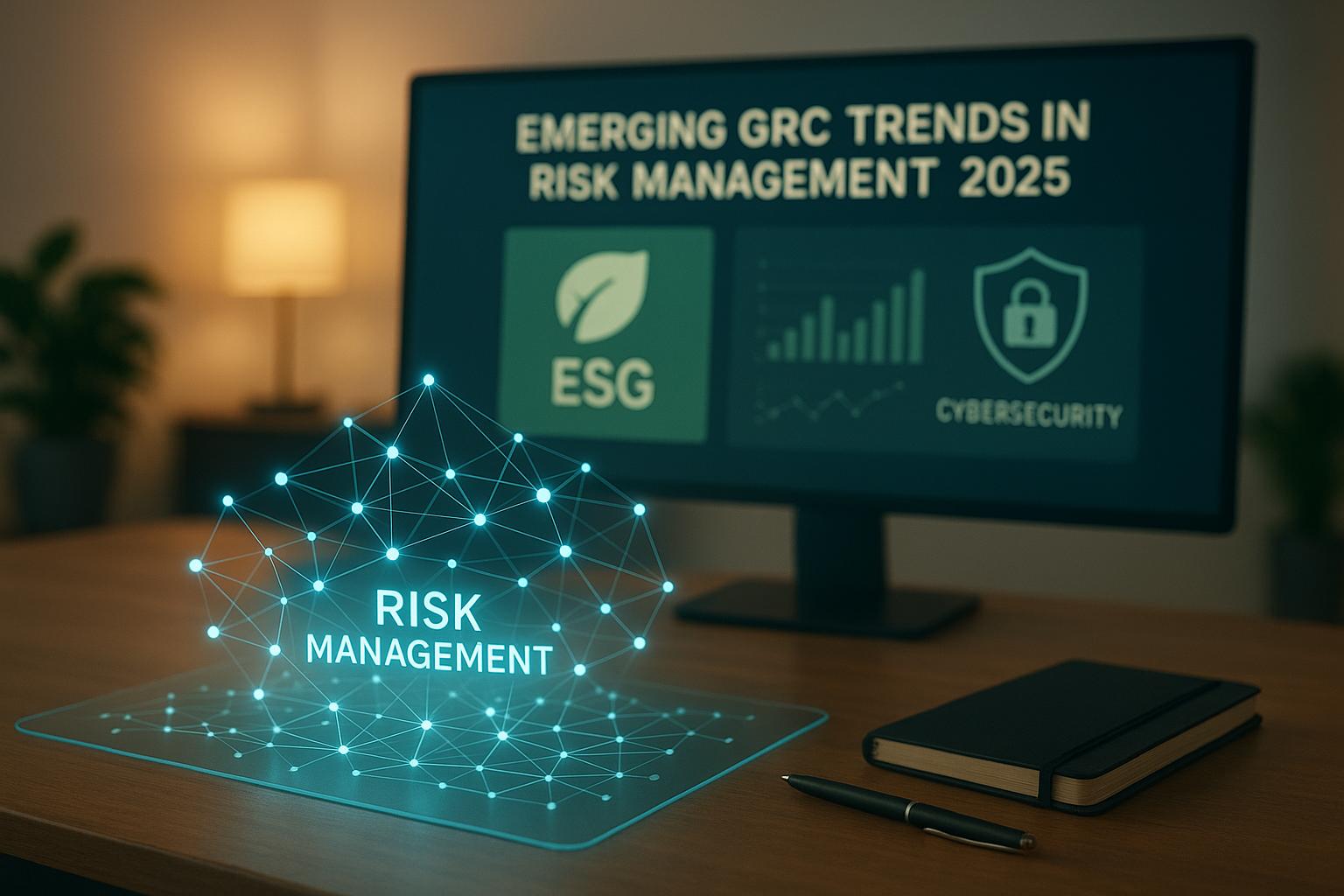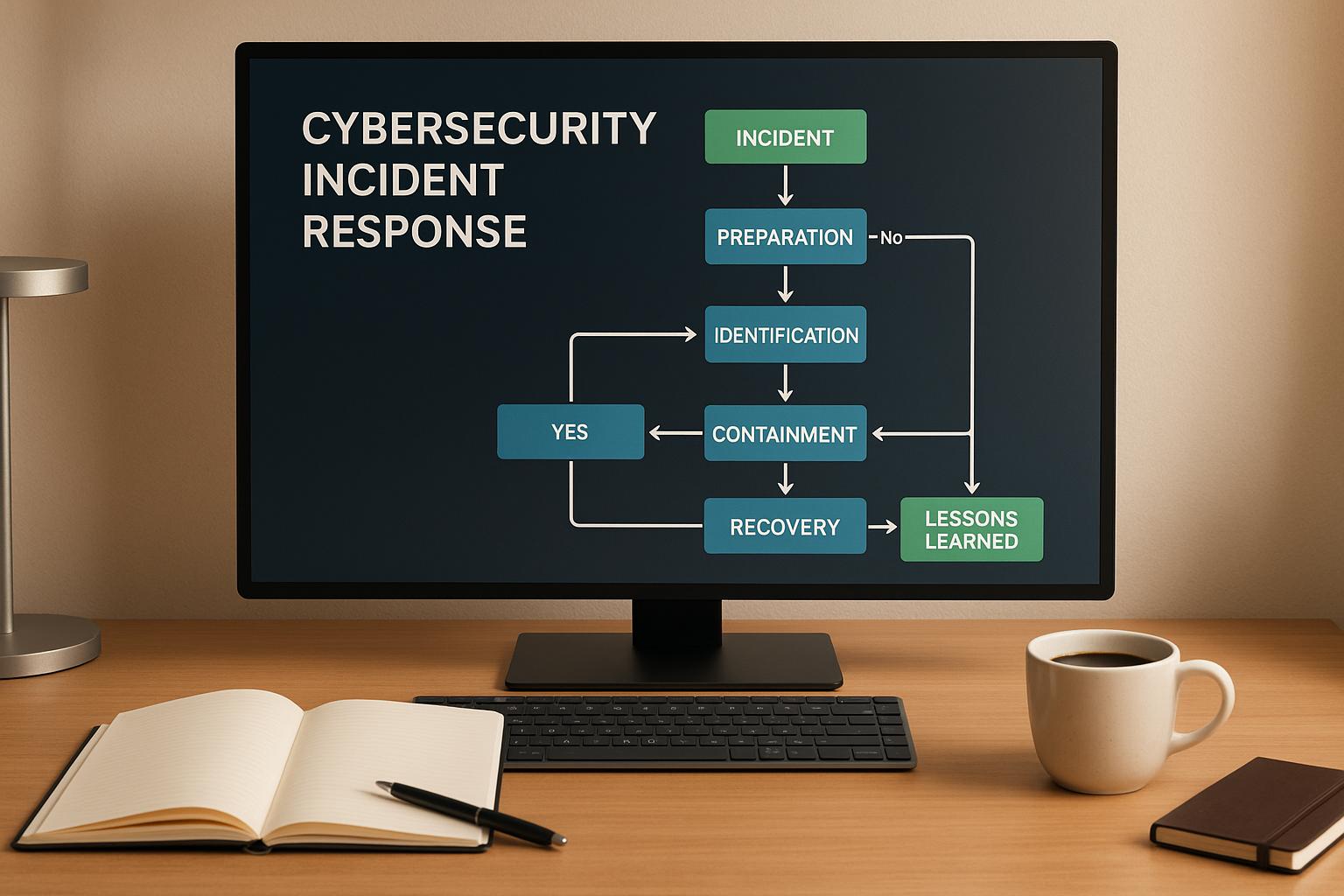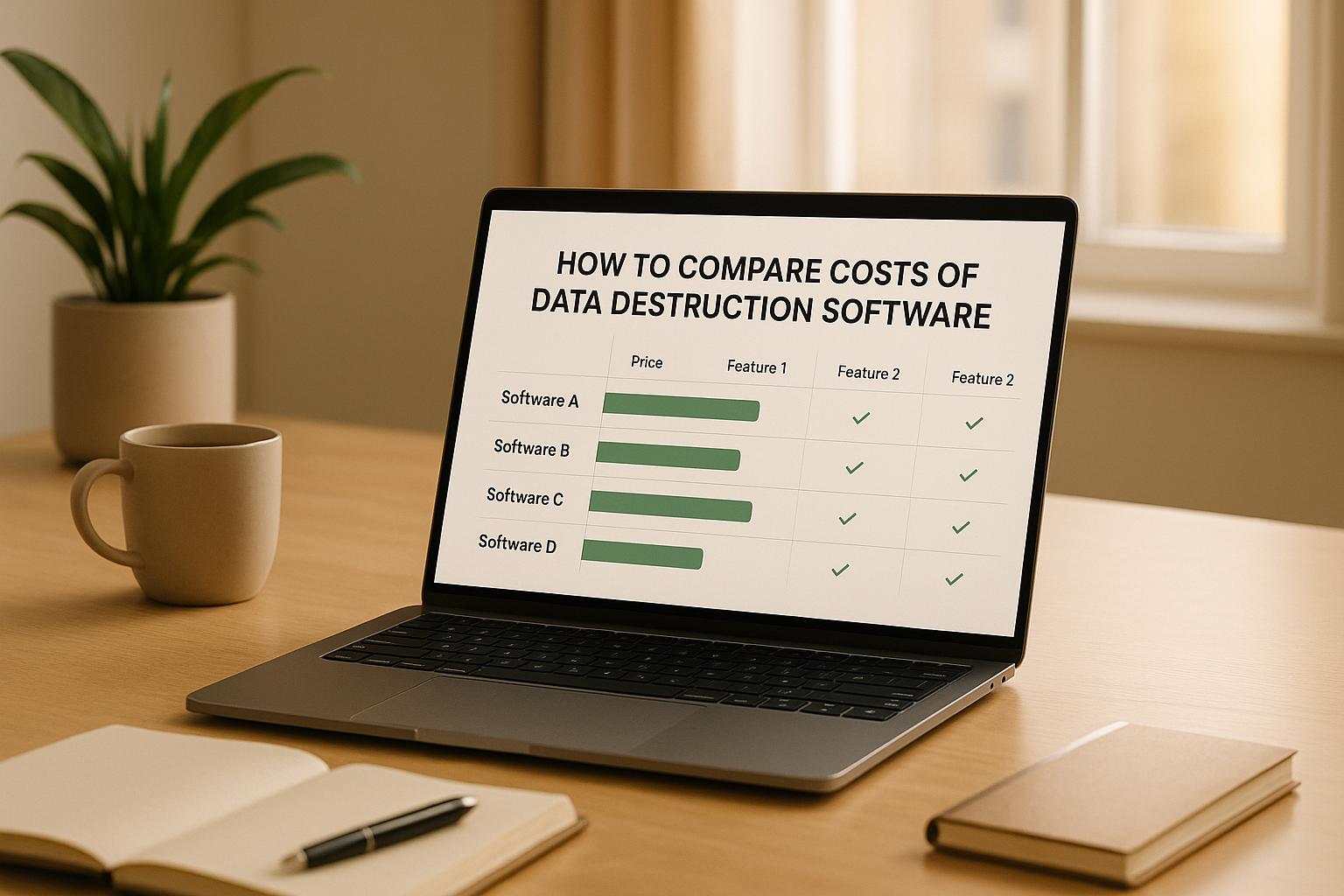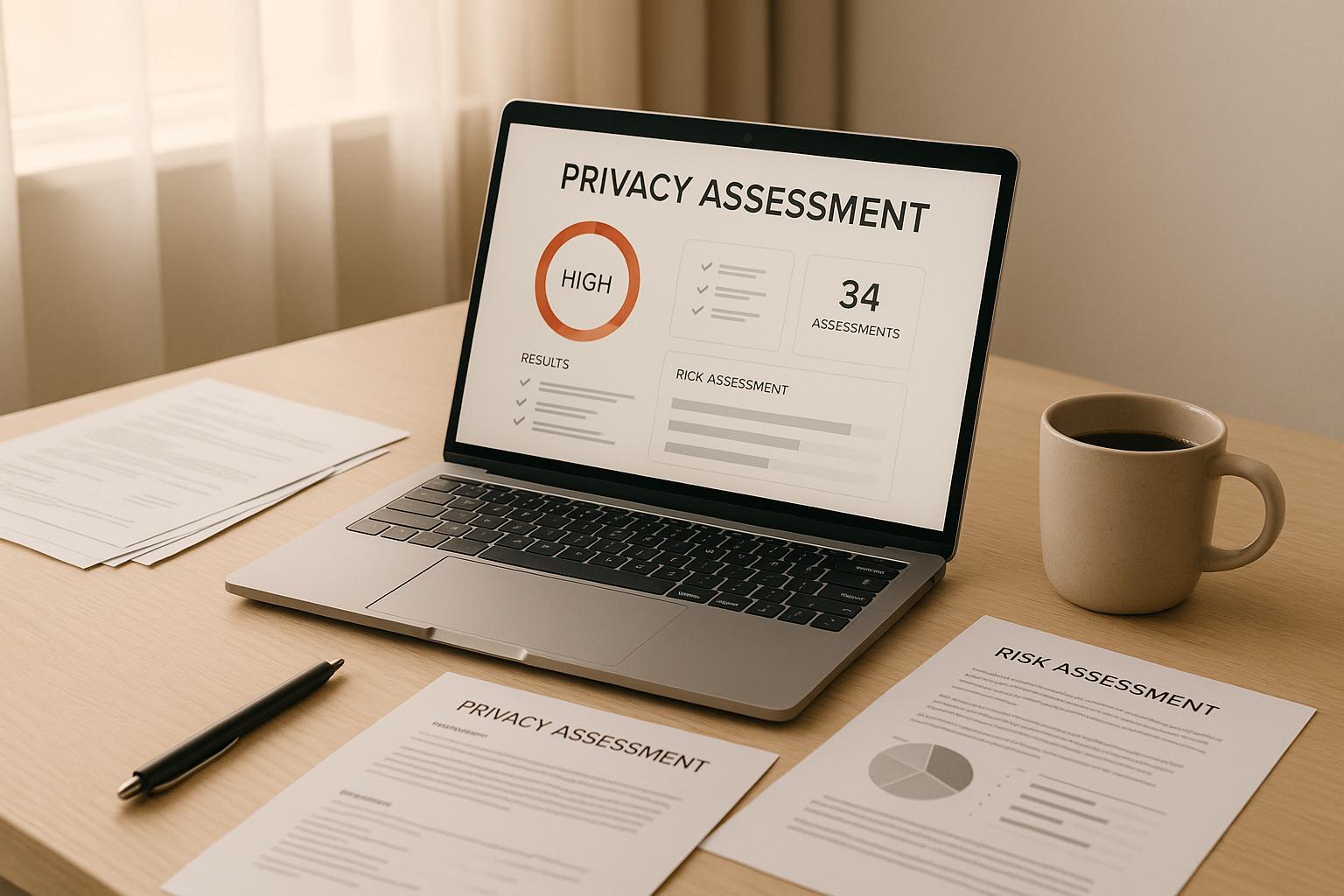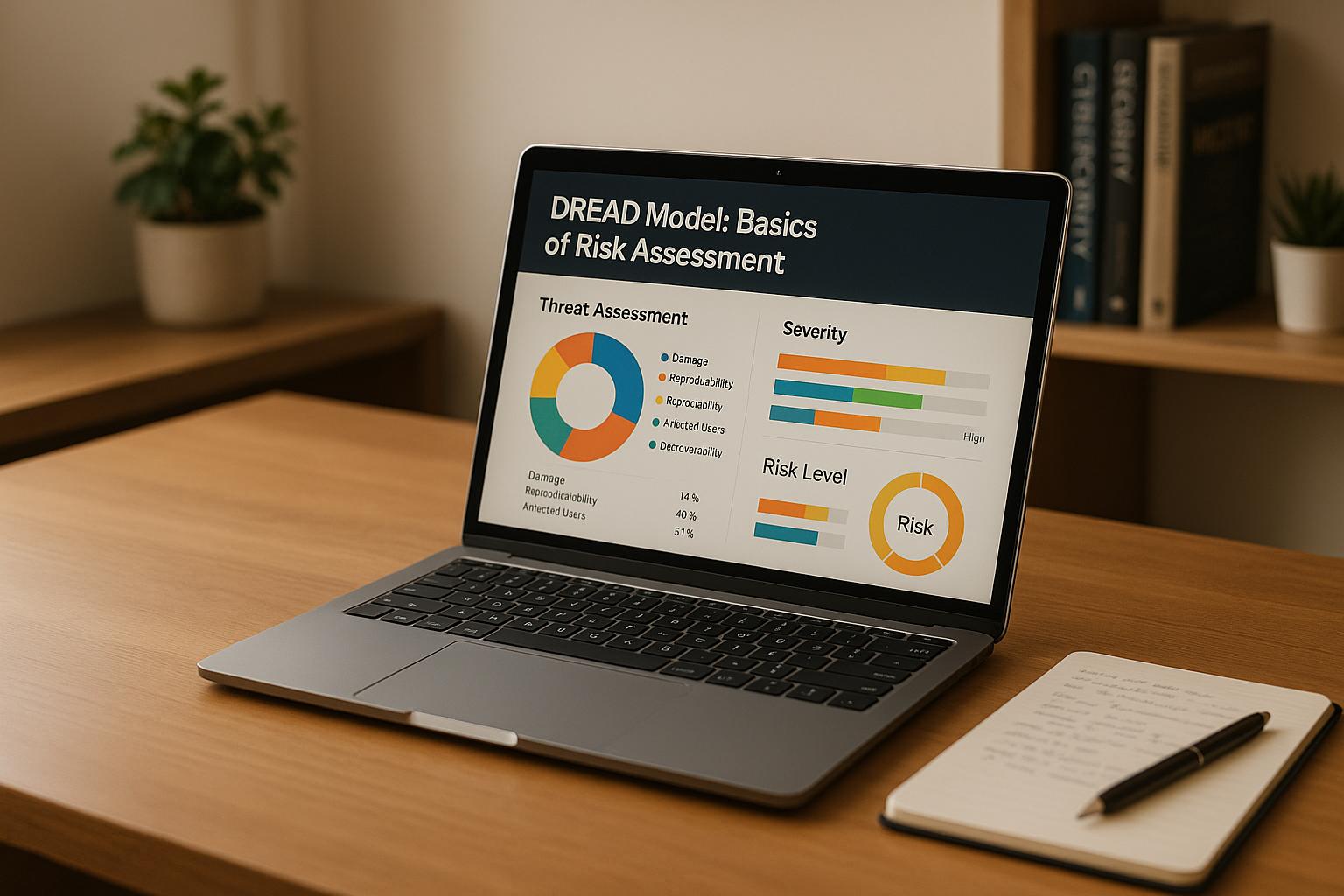
Managing sensitive data correctly is essential for meeting regulations like SOC2, HIPAA, and GDPR. A clear data retention policy helps businesses stay compliant, avoid fines, and protect sensitive information. Here's a quick breakdown:
- What It Covers: Retention timeframes, storage, access, and secure deletion of data.
- Why It Matters: Reduces legal risks, simplifies audits, and improves operational efficiency.
- Key Challenges: Balancing compliance with storage costs, enforcing policies, and adapting to regulatory changes.
- Solutions: Use automated tools, conduct regular audits, and train staff.
Quick Tip: Unified retention policies streamline compliance across multiple frameworks and cut costs. Pairing automation with expert guidance ensures long-term success.
Want to dive deeper? The article explores specific rules, strategies, and tools to help you establish a robust data retention policy.
How Do You Document Your Data Retention Standards?
Data Retention Requirements in Major Regulations
Various regulations require organizations to follow strict data retention practices. Below, we’ll break down the specific rules for frameworks like SOC2, HIPAA, and GDPR, as well as highlight common retention standards that simplify compliance.
SOC2, HIPAA, and GDPR Data Retention Rules

SOC2, HIPAA, and GDPR each have their own data retention rules, tailored to protect sensitive information. While their requirements differ, they share the goal of safeguarding data and ensuring compliance. Combining these standards can help businesses create a more cohesive data retention strategy.
Common Data Retention Standards
Many regulations share overlapping data retention principles, which can simplify compliance efforts. Here are some key benefits:
- Simplified Management: A single policy can address multiple regulatory frameworks.
- Reduced Complexity: Consistent rules across frameworks make implementation easier.
- Improved Compliance: Uniform policies help ensure adherence to retention requirements.
- Operational Efficiency: Training and enforcement become more straightforward.
Using a unified approach to data retention not only satisfies the demands of various regulations but also reduces administrative overhead. Automated tools can play a critical role in maintaining consistency, while experienced compliance partners can assist in designing and managing effective retention policies. This approach is especially useful for businesses juggling multiple regulatory requirements.
Required Elements of Data Retention Policies
A strong data retention policy should outline essential elements that address both regulatory and business requirements.
Data Types and Categories
Organizing data into categories allows for applying specific retention rules:
| Data Category | Description |
|---|---|
| Personal Health Information (PHI) | Includes medical records, lab results, or prescriptions. Retention must comply with healthcare regulations like HIPAA. |
| Financial Records | Covers transaction data, accounting records, and tax documents. Retention should meet standards such as SOC2. |
| Personal Data | Includes customer information and employee records. Retention should align with legal obligations, as seen in GDPR principles. |
| System Logs | Includes access logs, security events, and audit trails. Retention depends on operational and security requirements. |
Setting Retention Timeframes
Choosing the right retention periods involves balancing several considerations:
- Legal Requirements: Regulations often dictate minimum or maximum retention periods.
- Business Needs: Operational goals might require keeping data for extended periods.
- Storage Costs: Longer retention can lead to increased storage expenses.
- Risk Management: Retaining data for too long could heighten exposure to risks.
Define clear, regulation-compliant timelines for each category. Regularly review and update these timelines to reflect any changes in requirements or business priorities.
Data Storage, Access, and Deletion Methods
Managing data securely throughout its lifecycle is critical for compliance and minimizing risks:
- Storage Requirements: Use encrypted and segregated storage systems, implement strict role-based access controls (RBAC), and maintain detailed audit logs.
- Access Controls: Enforce robust authentication measures and limit access based on roles and responsibilities.
-
Deletion Procedures: Establish secure deletion methods specific to each data type, such as:
- Physical destruction of hardware when necessary
- Secure digital wiping techniques
- Verification steps to confirm complete deletion
- Proper documentation of deletion activities for audit purposes
Regularly test these procedures to ensure they are effective. Proper storage, access, and deletion practices are essential for reducing compliance risks and will be discussed further in the next section.
How Data Retention Policies Support Compliance
Minimizing Legal and Financial Exposure
Data retention policies help businesses meet regulatory standards and reduce compliance risks by maintaining clear data management practices. A well-defined policy demonstrates adherence to regulations like SOC2, HIPAA, ISO27001, and GDPR, minimizing the chances of penalties.
"Our Compliance Services ensure your company meets the necessary regulatory requirements without the headaches. Whether it's SOC2, HIPAA, ISO27001, or GDPR, we guide you through the entire process, from initial assessment to certification. By achieving and maintaining compliance, you not only avoid costly fines but also enhance your market credibility, speeding up your sales cycles and boosting customer trust."
In addition to addressing legal risks, a solid policy helps improve how data is organized internally.
Improving Data Organization
A structured data retention policy doesn’t just mitigate risks - it also improves how data is managed. It simplifies audits by making it easier to retrieve records and maintain accountability. Automated tools can further enhance this process by:
- Tracking retention timelines
- Identifying data for review or deletion
- Creating compliance reports
- Documenting retention actions
This organized approach ensures smoother audits and strengthens operational efficiency.
sbb-itb-ec1727d
Common Data Retention Policy Issues
Once the basics of data retention policies are in place, organizations often face real-world challenges in implementing and maintaining them.
Balancing Storage Costs and Compliance
Managing storage costs while meeting compliance requirements is a tough balancing act. As data volumes grow, so do the costs of storing it in a compliant manner. Organizations need to carefully decide which data should be kept long-term to control expenses while adhering to regulations.
"Outsourcing to Cycore Secure eliminates the need for a full-time, in-house security team, which can be costly. We offer comprehensive services at a fraction of the cost, providing you with expert support without the financial burden of full-time salaries and benefits."
This tension between cost management and compliance highlights the broader challenges of implementing effective data retention policies.
Challenges in Enforcing Policies
Enforcing data retention policies is no small feat. Here are some common hurdles:
- Decentralized storage systems make consistent enforcement difficult.
- Manual processes increase the likelihood of mistakes.
- Older systems often lack modern retention features.
- Shadow IT can bypass official policies entirely.
To improve enforcement, organizations need reliable systems and clearly defined processes. However, constant regulatory changes add another layer of complexity.
Adapting to Regulatory Changes
Data protection regulations like GDPR and HIPAA are constantly evolving, requiring companies to regularly update their retention policies. This means businesses must dedicate resources to interpreting new rules, implementing changes quickly, and ensuring global compliance.
Specialized compliance services are becoming a popular solution. These services offer ongoing support, such as regular audits and policy updates, helping organizations stay compliant while managing costs effectively.
Data Retention Policy Success Strategies
Regular Policy Assessment
Keeping data retention policies effective requires constant evaluation. Companies should set up a routine process to audit and update their policies, ensuring they align with the latest compliance standards. This involves reviewing how long data is kept, verifying the accuracy of data classification, and assessing storage methods.
Regular evaluations are a cornerstone of a solid compliance plan. A structured approach might include automated compliance checks, detailed reviews, independent audits, and swift updates when regulations shift. Using automated tools can make these tasks more efficient and reduce the burden of manual work.
"Cycore provided exemplary service in managing our compliance needs. Their team's experience is evident with how quickly they were able to solve our challenges." - David Kim, Co-Founder, Monterra
Automated Retention Tools
Modern Governance, Risk, and Compliance (GRC) tools play a crucial role in handling retention tasks. They help reduce manual work and minimize errors, keeping compliance on track.
Here are some essential features of these tools:
| Feature | Benefit |
|---|---|
| Automated Classification | Sorts data based on content and regulatory needs |
| Retention Tracking | Monitors and enforces retention periods automatically |
| Compliance Monitoring | Offers real-time insights into the status of data retention |
| Deletion Workflows | Ensures proper authorization and documentation for data removal |
To maximize the benefits of these tools, organizations might consider GRC Tool Admin Services to ensure smooth operation and efficiency. Alongside automation, training employees on these systems is equally important for long-term success.
Staff Retention Policy Training
Training is key to making sure policies are followed effectively. Companies should design training programs that cover both basic and advanced aspects of data retention. As rules and policies evolve, training materials should be updated accordingly.
Important training topics might include:
- Data Classification Guidelines: How to properly categorize information
- Retention Timeframes: Understanding required retention periods
- Compliance Requirements: Applying regulations in day-to-day tasks
For teams handling sensitive data, periodic advanced training sessions can help reinforce best practices.
Cycore Secure's Compliance Management Services

Cycore Secure simplifies the challenge of meeting various compliance standards by combining effective data retention strategies with expert management.
Cycore Secure Service Overview
Cycore Secure offers tailored solutions to help businesses navigate compliance requirements like SOC2, HIPAA, ISO27001, and GDPR. Their services include:
| Service Type | Key Features | Benefits |
|---|---|---|
| Virtual CISO (vCISO) | Security leadership, compliance strategy, framework implementation | Access to seasoned expertise without hiring a full-time executive |
| Virtual DPO | GDPR/CCPA compliance management, data protection oversight | Ensures adherence to privacy regulations |
| GRC Tool Administration | Setup, configuration, and maintenance of compliance tools | Simplifies compliance tracking and reporting |
Their tiered approach caters to businesses of all sizes. Startups can focus on single-framework compliance, while enterprises benefit from multi-framework support. Mid-sized companies gain access to multi-framework vCISO services, advanced GRC management, and quarterly security training. These services are designed to ensure smooth compliance processes.
Why Choose Expert Compliance Support?
"With Cycore, there's no need for my team and I to worry about security and privacy. Cycore keeps us up to date on our compliance program and notifies us ahead of time if they need something from us."
Here’s what sets Cycore Secure apart:
- Expert Guidance: Avoid the cost and complexity of maintaining an in-house security team.
- Broad Framework Support: Covers over 15 compliance frameworks, ensuring comprehensive coverage.
- Faster Certifications: Speeds up the certification process, boosting sales opportunities and credibility.
"Our Compliance Services ensure your company meets the necessary regulatory requirements without the headaches." - Cycore Secure
Conclusion
Retention policies play a key role in meeting compliance standards like SOC2, HIPAA, and GDPR. Organizations must carefully align practical implementation with these requirements to avoid fines and protect their reputation in the marketplace.
Strong retention strategies not only ensure compliance but also deliver measurable advantages:
| Benefit | Impact |
|---|---|
| Risk Reduction | Lowers the likelihood of legal challenges and penalties |
| Operational Efficiency | Simplifies data management and cuts down on storage expenses |
| Market Advantage | Speeds up sales cycles by showcasing compliance readiness |
| Resource Optimization | Saves costs compared to handling compliance internally |
Key elements of a successful compliance program include regular audits, automated tools, and ongoing staff education. Partnering with experts can also provide critical support for organizations aiming to enhance their compliance efforts.
"With Cycore, there's no need for my team and I to worry about security and privacy. Cycore keeps us up to date on our compliance program and notifies us ahead of time if they need something from us."
The future of data retention compliance lies in combining automation with expert insights, allowing organizations to keep pace with changing regulations while staying efficient.






